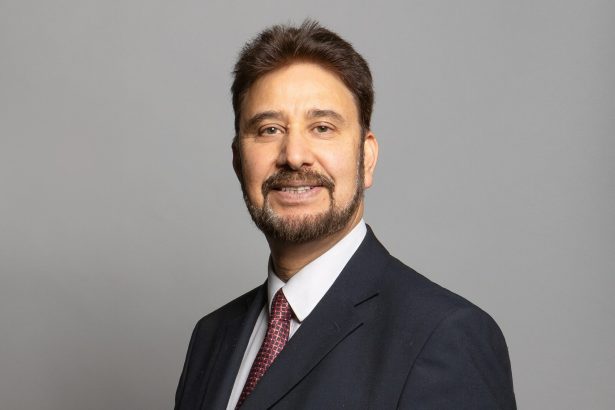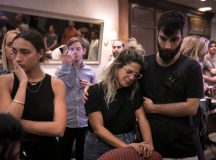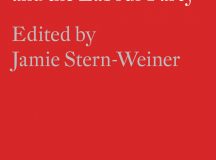Yaron Matras is former Professor of Linguistics at the University of Manchester and Associate Fellow of the London Centre for the Study of Contemporary Antisemitism. He has worked with Afzal Khan on anti-racist and inter-faith initiatives for almost 20 years
Dear Afzal,
It took more than a week after the Hamas attack on 7 October 2023 until you released a statement expressing your concern for casualties on both sides.[1] You opened it with these words:
I am deeply alarmed by the unfolding events that continue to transpire in Israel and Palestine following news of a violent attack by Hamas in Israel over one week ago. There is never an excuse for attacking innocent civilians, and the continuing cycles of violence only make a long-lasting peace settlement harder to achieve.
In the opening line you clearly denounced the Hamas attack. But you then hurried to add no fewer than ten paragraphs in which you condemned Israel’s response. Although I wrote to you in private to thank you for that statement, it almost seemed to me as if you had waited before condemning the attack on Israel until you had found a reason to relativise that condemnation by devoting more space to Israel’s attack on Gaza. You did not mention the continuing Hamas missile attacks on Israel nor did you call for the release of the Israeli and other hostages held by Hamas.[2]
In the year that has passed since, reprimanding Israel’s actions in Gaza remained high on your agenda. Yet you continued to ignore the hostages and you never once called on Hamas to disarm or accept a ceasefire, though by reiterating Labour’s commitment to a two-state solution you did at least implicitly distance yourself from Hamas’s objective to destroy Israel (as well as from the common chant at anti-Israel rallies ‘no two states, forty-eight!’).
One year on, shortly before the anniversary of the attack, I challenged you on social media to issue a statement to mark that horrific day. I do not know whether your anniversary statement was in part a response to that challenge or whether it had been on your list of things to do all along. In your three-point statement marking the anniversary of the 7 October attacks you wrote[3]:
Today marks one year since Hamas’ attack on innocent Israelis which saw over 1,500 Israelis and foreign nationals killed, and the subsequent massacres in Gaza by the Israeli Army. In this time, over 40,000 Palestinians have been killed in Gaza, almost 100,000 have been injured and over 10,000 are missing. Over 11,000 children have been killed in Gaza, including 710 Palestinian newborn babies.
Your next paragraph describes the ‘extension of hostilities into the West Bank, Lebanon, Iran and Yemen, taking the Middle East closer to the brink of all-out war’ and calls for an ‘international intervention to alleviate the humanitarian crisis in Gaza’, an ‘end to the illegal occupation in the West Bank’ and for ‘all parties to be held to account by the International Court of Justice’. The final part asserts that ‘the violence we are witnessing is a result of decades of international partners failing to resolve the issue of Palestinian statehood’.
What’s wrong with that statement? After all, it acknowledges that the Israeli victims of Hamas were ‘innocent’ and that ‘all parties’ must be held to account by the standards of international law. It is, on the face of it, balanced. The quantitative asymmetry with reference to the victims might be said to simply reflect the reality of a much higher number of Palestinian casualties that the war has claimed over the past year.
We can never be certain about hidden motivations, and I do not want to make assumptions, but context is important.[4] To begin with, the temporal context is the anniversary of a massacre that targeted Israelis. Families and friends of victims and Jewish communities around the world, including in Britain and in your own constituency, commemorate their deaths, mark the injuries and traumas and unite in the call for a safe return of the hostages, among them young children and elderly women and men. Commemoration of atrocities, as in Holocaust remembrance, is also about the future: seeking safety and security and removing threats. You pick up that temporal context but you divert it almost entirely to the political agenda that you have been pursuing since the beginning of the war, which is to hold Israel solely accountable for the violence. On the anniversary of the slaughter, you refer to the Israelis as having been ‘killed’ while it is Israel that you accuse of ‘massacres’. There is no mention of the hostages, an omission that one might have regarded as an oversight were it not consistent with your statements on the conflict over the past year.
You rightly warn of an escalating regional conflict. But your choice of words is almost subtle and barely noticeable: rather than point out that Iran, Hizbullah, and the Houthis have joined Hamas’s attacks on Israel, you talk about ‘the extension of the war to Lebanon, Iran and Yemen’, implying that those regions are passive and that they are being targeted randomly by Israel.
You go on to suggest that the current conflict is a result of Israel’s occupation and the international community’s failure to support Palestinian statehood. You make no attempt to seek a balance here, for instance by mentioning that the parties actively involved in the fighting over the past year refuse to accept Israeli statehood and persistently call for Israel’s destruction. One might contend that you are not alone in speaking of the Hamas attacks in the historical context of Israel’s occupation of Palestinian territories. UN Secretary General António Guterres said on 23 October 2023: ‘The attacks by Hamas did not happen in a vacuum.’[5] But the difference is beyond just detail. The Secretary General’s communication opens by condemning Hamas’s attack as an act of ‘terror’ that is ‘horrific’ and calls for the immediate and unconditional release of the hostages. It then addresses the occupation but states that ‘the grievances of the Palestinian people cannot justify the appalling attacks by Hamas’. None of that appears in your anniversary message (though it was partly alluded to in your statement from October 2023): no direct expression of compassion for the Israeli victims apart from acknowledging that they were ‘innocent’, no explicit words of condemnation of Hamas. In the absence of such words, attributing the violence to a failure to enable Palestinian statehood will most certainly be read by some as a justification for that violence: that is the line promoted by the Stop the War Coalition and affiliated initiatives. They have persistently condemned Israel over the past year while holding back with any criticism of Hamas, some even glorifying it as ‘resistance’. The few social media reactions to your statement suggest that it was read as an unequivocal indictment of Israel on the day that it remembers the random slaughter of its own people.
There is more by way of historical context. In 2002 at a rally in London you said that Israel was determined to ‘commit genocide against the Palestinian people’, a comment for which you later expressed regret.[6] The public criticism that followed prompted you to co-found the Manchester Muslim-Jewish Forum in 2004, and in 2008 you were awarded a CBE for your work in support of inter-faith dialogue. Then in 2014, when you were MEP, you said the Israeli government was ‘acting like Nazi’s [sic] in Gaza’. Again, you offered an apology.[7] In 2015, as Shadow Immigration Minister under Jeremy Corbyn, you were criticised for sharing a video clip that denounced ‘Israel-British-Swiss-Rothschilds crime syndicate.’ You apologised yet again, claiming you had not read the text before re-posting it online.[8] At the time, I sincerely believed your version of events and I remember even offering you to go public to counter the insinuations that your actions were motivated by latent antisemitism. Then in 2017, you were recorded again speaking at a rally where you declared that Israel was responsible for genocide.[9]
In January 2024 you claimed in Parliament and in a public letter to Foreign Secretary David Cameron that the Israeli Ambassador Tzipi Hotovely had ‘called for genocide in Gaza’. You demanded that she face consequences in regard to her diplomatic accreditation.[10] You were referring to an interview that the Ambassador gave to LBC radio in early January.[11] I am no fan of the Ambassador and her politics, or of the politics that she represents, as you well know. But In fact, what the Ambassador had said was that Gaza had an underground tunnel city and that in order to dismantle it, areas hosting it had to be destroyed. She emphasised that the issue was complicated by the fact that private homes, mosques and schools had direct access to the tunnels. Confronted by the interviewer‘s suggestion that this meant ‘flattening the whole of Gaza’ she emphatically denied that was the intention and clarified that only infrastructure was being targeted that served what she called the ‘system of terror tunnels’. She rhetorically asked the interviewer if he had a better plan. You took that comment and cited it as proof of her supposed call for genocide. Whether or not she was being disingenuous, and whether or not Israel might have proceeded with more caution or with a different set of tactics or military objectives altogether, is immaterial to the point that there was, in that interview, no call for genocide. You chose to label her response in such a way in order to portray Israel, yet again, after countless apologies for saying the same, as committing a Nazi-style genocide. Your ideological interpretation overshadowed the facts of what was said. Is it possible that by misrepresenting the Ambassador’s words from the LBC interview you misled Parliament and the public?
As someone who knows you and believes in many of the causes that you stand up for, it’s very tempting to look at your 7 October anniversary statement and believe it was simply ill-worded or suffered from careless omissions. But the reality is that on these matters you are what one might now call a ‘serial offender’. I grew up in Israel, and I studied and worked in Germany before taking up a job in the UK in the mid-1990s. I have always struggled to internalise the British institutional form of discourse that gives more importance to tone than to substance. I was puzzled how in British culture uttering an apology is considered a legitimate way to erase a preceding error even without committing to a remedy or future change. You have apologised again and again for your ‘genocide’ rant, yet you continue to articulate it in your communications. You also do not seem to accept that there is a contradiction between inflammatory statements that inevitably stir up tensions and hatred, and a commitment to inter-faith dialogue. Your persistent depiction of Israel as ‘genocidal’ is strange to the facts on the ground and manipulative when it relies on bold and blatant disinformation, as in the case of your attack on the Ambassador. It demonises Israel wholesale, attributing to it sinister intentions of treachery and conspiracy. In that way it shifts the discussion of events in the Middle East from the factual to the metaphysical. It also seems to testify to a kind of relentless obsession with wanting to invert the narrative of historical Jewish victimhood of genocide, something that Jewish people are likely to regard as trivialising antisemitism. For your purported interest in inter-faith dialogue, it doesn’t seem that you have given this aspect much thought when performing to an audience that you apparently believe will reward you for simplistic, populist slogans.
We first met in 2006 when you were Lord Mayor of Manchester. I invited you to an event devoted to Romani language and culture where you delivered a speech that your office had asked me to draft for you. It said that the city welcomed its Romani residents. You were the first leader of any major European city to make such a statement. As an MEP you continued to support the public engagement side of research that I led at the university. You invited me to join the Manchester Muslim-Jewish Forum where we often met for events that purposefully avoided controversial issues like the Middle East, focusing instead on community relations in Manchester and festivities, though Holocaust commemoration figured regularly and prominently. Nobody can accuse you of indifference to historical Jewish suffering, which is why your repeated game with the label ‘genocide’ in respect of Israel with inverted implications remains incomprehensible.
After you were elected MP, you supported my calls to amend the census question on languages in order to obtain more accurate data. You were a regular visitor at public events that I organised in support of community languages, including one celebrating the Palestinian-led Manchester Arabic School.[12] You endorsed my initiative to adopt UNESCO International Mother Language Day into the local civic calendar in Manchester – the only UK city to have done so. Inspired by our discussions on home languages, you took your Parliamentary oath both in English and in your mother’s home language, Urdu. You hosted an event that I initiated at the Houses of Parliament where together we called for a comprehensive domestic language policy and support for heritage languages[13]. When the Covid pandemic broke out, you stood alone in Parliament demanding that the government distribute information in community languages. You used your own social media and website to disseminate translations in a wide range of languages. In my latest book, which deals with multilingualism in the city and national policy on languages, I make frequent mention of your various initiatives and public statements on these issues.[14]
In the summer of 2018, at the height of the controversy around then Labour leader Jeremy Corbyn’s indifference to (and at times defence of) antisemitism, you were receptive to my critique and concerns. I know that you communicated them along with a short proposal that I had drafted to the party leader, though the leader took no notice. In early 2022, ahead of a debate in Parliament on recognising Palestinian statehood, you shared with me a draft of your speech and took on board all the corrections that I had suggested including removing the term ‘Israel’s apartheid’. I am not aware of any such collaboration between a British-Israeli academic and a Muslim Member of Parliament on Israel-Palestine. Are you?
I wasn’t there when you wrote your 7 October anniversary statement, nor was I consulted. But the problems with its content do not seem to me to be due to casual negligence and certainly not to subject matter ignorance. The ‘genocide’ theme has been surfacing again and again in your public communications long before the current Gaza war. It suggests a permanent preoccupation with a view of Israel as an entity that is diabolical and unworthy of sympathy even at a moment of tragic suffering. The day on which we commemorate that suffering seems to you to be simply another opportunity to perform to an audience that in large parts wants to see Israel eliminated and believes that Israel deserved what it got on 7 October 2023.
It should not be incompatible to criticise Israel’s policies and at the same time stand up for community cohesion in Britain. My personal impression of your vision and philosophy has always been that you genuinely care about communities and their needs and aspirations. But there is also a proven link between inflammatory, undifferentiated and one-sided rhetoric on Israel and the outburst of hate targeting British Jews and Israelis as ‘Zionist agents’ who supposedly pose a threat from within. It’s simply not right to be the purveyor of such rhetoric and then at the next opportunity go back to celebrating inter-faith relations knowing you will always be welcomed there with open arms.
[1] Afzal Khan is the Labour Member of Parliament for Manchester-Rusholme, a constituency with over 25 per cent Muslim voters as well as a sizeable Jewish community. He previously served as Councillor and Lord Mayor and later as Member of the European Parliament. His foreign policy interests focus on discriminatory treatment of Muslim populations at the hands of non-Muslims: Rohingyas, Uyghurs, Kashmiris and Palestinians.
[2] https://www.afzalkhan.org.uk/news/2023/10/31/violence-in-israel-and-palestine-october-2023-update/
[3] https://www.afzalkhan.org.uk/news/2024/10/07/marking-the-first-anniversary-of-the-7th-october-attacks/
[4] See my chapter ‘It’s all about context’. Antisemitism in the discursive space post 7 October. In: Freedman, Rosa and Hirsh David, with Lanir Zafir, Odeliya. eds.2024. Responses to 7 October: Antisemitic discourse. London: Routledge. 100-106. https://yaronmatras.org/wp-content/uploads/2024/07/all-about-context.pdf
[5] https://www.un.org/sg/en/content/sg/speeches/2023-10-24/secretary-generals-remarks-the-security-council-the-middle-east%C2%A0
[6] https://order-order.com/2017/04/06/labour-gorton-candidate-accused-israel-of-genocide/; https://www.theguardian.com/politics/2017/apr/09/afzal-khan-labour-manchester-gorton-byelection-candidate-ken-livingstone
[7] https://www.timesofisrael.com/jewish-groups-to-labour-suspend-mep-who-compared-israel-to-nazis/
[8] https://www.timesofisrael.com/senior-uk-labour-mp-apologizes-for-posting-anti-semitic-conspiracy/
[9] https://www.independent.co.uk/news/uk/politics/labour-gorton-by-election-candidate-afzhal-khan-israel-genocide-audio-leak-ken-livingstone-anti-semitism-jewish-a7670546.html
[10] https://x.com/AfzalKhanMCR/status/1742932162440233224
[11] https://www.youtube.com/watch?v=cQtqvSYjMIc
[12] https://www.youtube.com/watch?v=y1GOi1FBDpA
[13] https://www.youtube.com/watch?v=UQoVeP-STDM
[14] Speech and the City: Multilingualism, Decoloniality and the Civic University. Cambridge University Press, 2024. https://www.cambridge.org/core/books/speech-and-the-city/5554A2626BF69CA029F361FA9BEB91F6




































